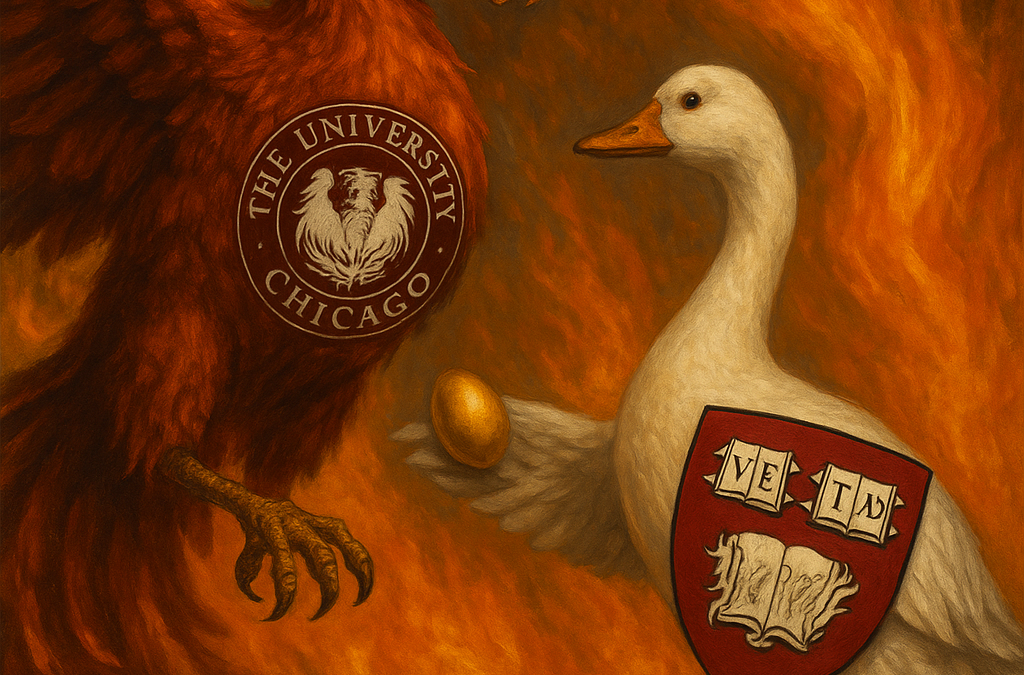
So I just watched Oppenheimer in the cinema just about an hour ago and it was probably the first movie that I watched in an entire era right here.
I rarely watch movies nowadays because of my increasingly busy schedule, but when I heard that Christopher Nolan had created a brand new movie starring that guy who was the bad guy from Batman now converted into, well, J. Robert Oppenheimer, I couldn’t resist; after watching it, I decided to do something even rarer and promptly wrote a review.
I read about the story of Oppenheimer for the longest time and had heard legends about how he was the smartest man in the entirety of Harvard, a man who literally changed a generation, changed the course of a war, and everything like that through books and articles too many to list… And I was interested to see the very first dramatization of his life story that I’ve ever seen in my entire life.
Of course Robert Downey Jr.’s performance as Strauss was incredible and so was Cillian Murphy’s portrayal of J. Robert Oppenheimer…
But by the end of the film, as I was leaving the theatre, I could immediately hear the kids who were sitting behind me complaining for the entire time because it was just talking the entire way and they were waiting for the bomb to explode and an hour in they found themselves lost and not really able to understand anything.
For me that’s entirely understandable because the kind of drama that was going on in the movie and the kinds of issues that were raised are things that are not really conventionally viewed as blockbuster style, partly because of the nature of the source material – not exactly action movie material, which is probably what the kids were going for… Still though, I found the movie extremely interesting because it raises all these deep issues about the way that we got to this point, game theory and the perennial security challenge and beyond that, all these fun issues about the fight between good and evil.
The protagonist, chosen to construct a weapon of mass destruction, appeared suspiciously out of place. He was not the typical figure you’d expect for such a grave task, exhibiting intermittent Communist sympathies and a tendency to veer off the expected path through his interests in leftism and his affairs with women; despite his intelligence, his decision-making was unpredictable.
Yet against all odds, he rallied a diverse team to collectively embrace a singular mission – the creation of the atomic bomb, accepting the potential for being vilified or possibly hailed by history for his actions. That’s why it made me wonder, as perhaps it would make anyone wonder…
Would you want to hold the burden of carrying hundreds of thousands of lives in your hands?
Would you want to be stained with that blood?
It was a profound ethical question that stood out back during the commencement of the atomic age and continues to stand out even now.
The movie was interesting for me also because it reminded me that at the time of this whole crisis, the United States was deep in the midst of a war with Nazi Germany, and they were trying their very best to develop a bomb before Germany could because they were dead set on ending the war, and because they were taking part in uncertain decisions that are perhaps all too familiar to anyone who has ever taken part in real adult life before.
What I saw that America saw ahead of it was the uncertain prospect of being able to save lives from America that would otherwise be snuffed out by the continuation of the war versus the certainty of killing people in Japan, to in turn make war unthinkable and thereby resolve the security dilemma by the prospect in turn of Mutually Assured Destruction… Certainly not just a couple of people, rather at the end of the day it was about 220,000 as the movie says; certainly a more advanced version of the famous Trolley Problem in which a larger number of people’s lives were at stake, designed to stop an outcome that we don’t know would have happened or not.
That said, while the movie raised the valid point that for all we know, perhaps indeed Japan would have surrendered; the movie itself had raised the point that Japan was a country that was already on the verge of surrendering… But then what happened was that there was this whole Deus Ex Machina moment where a character came in and said, “Hey, I know that they’re not going to surrender”, introduces an element of dramatic tension, but it also highlights the fog of war and the immense uncertainty that leaders face when making decisions that can alter the course of history.
In terms of historical accuracy, it’s well documented that the decision to drop the atomic bombs was indeed based on a complex mix of strategic, political, and ethical considerations. There were voices within the Allied camp arguing that Japan was on the verge of surrender and that the bombing was therefore unnecessary. On the other hand, there was a strong belief that Japan would continue to fight tenaciously, resulting in a high number of casualties on both sides.
From a philosophical perspective, this reasoning isn’t simplistic; it’s a grappling with consequentialist ethics where the ends justify the means. However, it can be deemed simplistic if one assumes that decision-making, especially on such a massive scale, should take into account a wider range of considerations beyond a straightforward calculation of lives saved versus lives lost. Factors such as the ethics of targeting civilian populations, the long-term geopolitical ramifications, the potential for setting a dangerous precedent, and the moral burden placed upon those making the decision should all feature into such a discussion.
In real life, the decision to drop the bombs was, indeed, made in an atmosphere of deep uncertainty. Information was imperfect and the stakes were enormous. The film portrays this ethical conundrum and the challenges of decision-making under uncertainty in a thought-provoking manner.
To sum up, while the ethical reasoning might seem simplistic at first glance, a deeper examination reveals a web of complexities that go beyond a simple calculation of lives saved versus lives lost. It’s a sophisticated exploration of the moral dilemmas of leadership and the harsh realities of wartime decision-making.
‘Oppenheimer’, as a film, brings to the fore the complex and multifaceted question of responsibility, especially when it involves the creation and application of potentially destructive knowledge or technology. Though Oppenheimer stands as the man who led the team of scientists that built the atomic bomb. However, he was not the one who made the decision to use this catastrophic device on Hiroshima and Nagasaki. It raises an interesting question: where does the responsibility lie? Is it with the minds that created the weapon or the hands that dropped it?
The film suggests that the onus does not solely lie with Oppenheimer and his fellow scientists who developed the bomb, but rather with the U.S. government and military that used it. The scientists, after all, were tasked with a job, and they did it. The use of the bomb, however, was a choice made by the government. This situation prompts contemplation of the difference between conceiving of a crime and actually committing one. The mere thought of a crime does not carry guilt; guilt becomes established only upon the realization of that thought into action.
This introduces us to a profound thought experiment. If the atomic bomb had never been used in the destruction of Hiroshima and Nagasaki, would we still view the creators of the atomic bomb as we do now? Are ideas themselves inherently evil, or is it their execution that determines their moral quality?
An idea, in isolation, is morally neutral. It’s the application and the consequences that dictate whether it’s deemed ‘good’ or ‘evil’. In this instance, the idea of nuclear fission led to the atomic bomb, which, when used, resulted in vast devastation. But the same principle also gave us nuclear power, an energy source that, when used responsibly, can bring numerous benefits.
Responsibility, then, isn’t just about the act of creation, but also about the choices made thereafter. It’s a dynamic, shared burden, intertwined with the choices that everyone in the world is making at any given point. The film encourages us to explore this moral landscape, prompting us to consider how individual and collective responsibilities interact and influence each other, and how our ideas, actions, and choices impact the world around us.
In the end, ‘Oppenheimer’ leaves us pondering the complex relationships between ideas, actions, and responsibility, providing a rich tapestry of moral and ethical questions that are as relevant today as they were during the dawn of the atomic age.
Like, if we hadn’t dropped the bomb, what kind of world would we be living in?
We conventionally think about the bomb as a bad thing, but Oppenheimer reminded me that sometimes, the things that we view as most fundamentally evil in this world, like for example becoming, in the words of the Bhagavad Gita as quoted by Oppenheimer, “I am become death destroyer of all worlds”…?
Probably not the most innocent or innocuous thing that you could do.
But somehow or another, if you think about it in the context of World War II at the time, which was a situation where Germany was, well, killing the Jews and also chasing physicists like Bohr out because they were Jewish and recruiting people like Heisenberg to fight their war and perform research to suit an end that likely both you and I would decide is not amenable to our conscience, it makes you just recognize how good and evil often are contextually interlinked and ultimately inseparable, only veiled from one another by paper-thin walls.
Like, if you choose to kill a couple million people because you wanted to achieve a good outcome, in this case the prevention of misuse of a similar bomb by a foreign power, then what you can be saying can be viewed as good. But on the other hand, if you happen to do what you’re doing for some other reason that is kind of adverse to one party’s interest, then somehow or another it just becomes evil… Right?
I don’t know.
The reasoning for that is pretty thin I guess.
Still, what is good or evil?
Is it just something that’s purely contextually defined, or is it something that holds true to certain moral precepts or even creeds throughout the ages and eras?
How would religion define the invention of the atomic bomb? Sociology? Philosophy?
How do any of these things relate to the way we actually process our thoughts and understand what’s in front of us?
The way that the movie kind of framed this entire issue was, you know, if you don’t build it then the Nazis will, and even though we don’t know that we can use it correctly, the Nazis certainly won’t – in a way, it was a pretty simplistic way of characterizing the choice I guess, but when we ourselves look at our own way of understanding ethical issues about morality and choice, I guess that our ethical decision-making processes converge on similar things regardless of level of education or status or position in society.
Still, Oppenheimer reminded me that sometimes, the things that we view as most fundamentally evil in this world can actually be viewed as exemplification of the ultimate good. In other words, becoming, in the words of the Bhagavad Gita as quoted by Oppenheimer, “I am become death, destroyer of all worlds” could either mean that you’ve become not just the destroyer of all worlds, but also the savior of all worlds – weird to think about how good and evil often are contextually interlinked and ultimately inseparable, only veiled from one another by paper-thin walls that break the moment you examine them.
What is good or evil? Is it just something that’s purely defined on a situational basis? Or is it something that holds true to certain moral precepts or even creeds throughout the ages and eras, therefore requiring us to consult ethics textbooks and an entire council of elders in order to determine the correct answer?
Ultimately I think that Oppenheimer portrayed the issues that were at hand in a pretty simplistic way, but did a good job of highlighting some of the complexities of a human ethical existence by making us look at our own ways of understanding ethical issues about morality and choice through the larger lens of a societal issue that has captivated the world’s imagination – or maybe it was just me? Haha, I don’t know. Either way, it was a deeply enriching experience as a result.
Now, the last lesson I learned from Oppenheimer was that people can get pissed off for the most random of reasons and you can do nothing about it, thereby providing a wonderful exploration about the importance of emotional intelligence or human pettiness – whichever you prefer.
Indeed, one of the pivotal themes the movie explores is the ugliness of human pettiness. It’s exemplified potently in the character of Lewis Strauss, the film’s principal antagonist. Strauss, who led the controversial hearings, was hell-bent on painting Oppenheimer as a traitor, a criminal, and even a communist. Consequently, Oppenheimer’s Q clearance, which allowed him access to classified information, was revoked, effectively ending his career in atomic research.
As the plot unfolded, it became evident that the roots of Strauss’s relentless pursuit of Oppenheimer were not founded on concerns of national security or ideological differences. Rather, they stemmed from an instance of personal humiliation at a Senate hearing where Oppenheimer had, inadvertently or not, made Strauss appear ignorant on the topic of isotopes. This seemingly innocuous event stoked a fire of resentment within Strauss, resulting in the cascade of events leading to the hearings.
Strauss’s reaction to this event serves as a stark reminder of how human pettiness can have far-reaching consequences. Instead of handling his emotions responsibly, he chose revenge as his path, leading to the tragic downfall of one of the nation’s most brilliant minds… And voila, here we see how human pettiness, when left unchecked, can warp one’s sense of perspective and result in actions that are out of proportion with the original offense.
The portrayal of Strauss’s vendetta against Oppenheimer serves as a cautionary tale about the damage caused by pettiness and the inability to forgive. It forces us to reflect upon our actions and the possible impact they can have on others, and by extension, on a larger scale. The depiction of these interpersonal conflicts in ‘Oppenheimer’ adds a rich layer of complexity to the film, making it a profound exploration of human nature as much as it is a historical drama.
This aspect of the film underscores how critical it is to handle disagreements and misunderstandings with maturity and grace. A lack of emotional intelligence and an inability to let go of minor slights can lead to destructive consequences – a reminder to myself as I go about my personal interactions in life as well.
While I’m not one to just completely accept the perspective that a particular film gives us because I do see how the lens of history is something that merits insight and thought, I do see the value of this particular interpretation in that it helps us to see a little bit of what came during that time and the life that Oppenheimer lived in a way I think that was valuable, offering some insight into things like for example his struggles maybe with communism, lovers, his engagement with the US government and also the process of navigating the development process of one of the most complicated and expensive projects ever executed in the entirety of human history to create a legacy that until today still makes people wonder, dream, and question themselves.
It made me wonder to myself about the kind of legacy that human beings are leaving on this planet as we kind of go because no matter what it is that we we do, we’re going to be working, creating, and leaving somehow a legacy or reputation for ourselves upon the surface of the earth as we come and as we go.
In Malay, there is this proverb that goes, “harimau mati meninggalkan belang dan manusia mati meninggalkan nama”.
The meaning of this is that when a tiger dies, it leaves its stripes.
When a human dies, he or she leaves his or her name.
And that idea has always captivated me, no more so than with the example of Oppenheimer, because that name will forever be remembered as the name that heralded in the atomic age; appreciating that complicated legacy and being able to experience and imagine what it was like to be in that era and to participate in the decisions and thought processes that were taken was something that was incredibly valuable for me.
A wonderful performance from Cillian Murphy, Matt Damon, Robert Downey Jr and the rest of the cast; it was a tremendously enjoyable movie, and a wonderful way to remember the legacy of Robert J. Oppenheimer, the father of the Atomic Age.
And that’s it for me, over and out.



